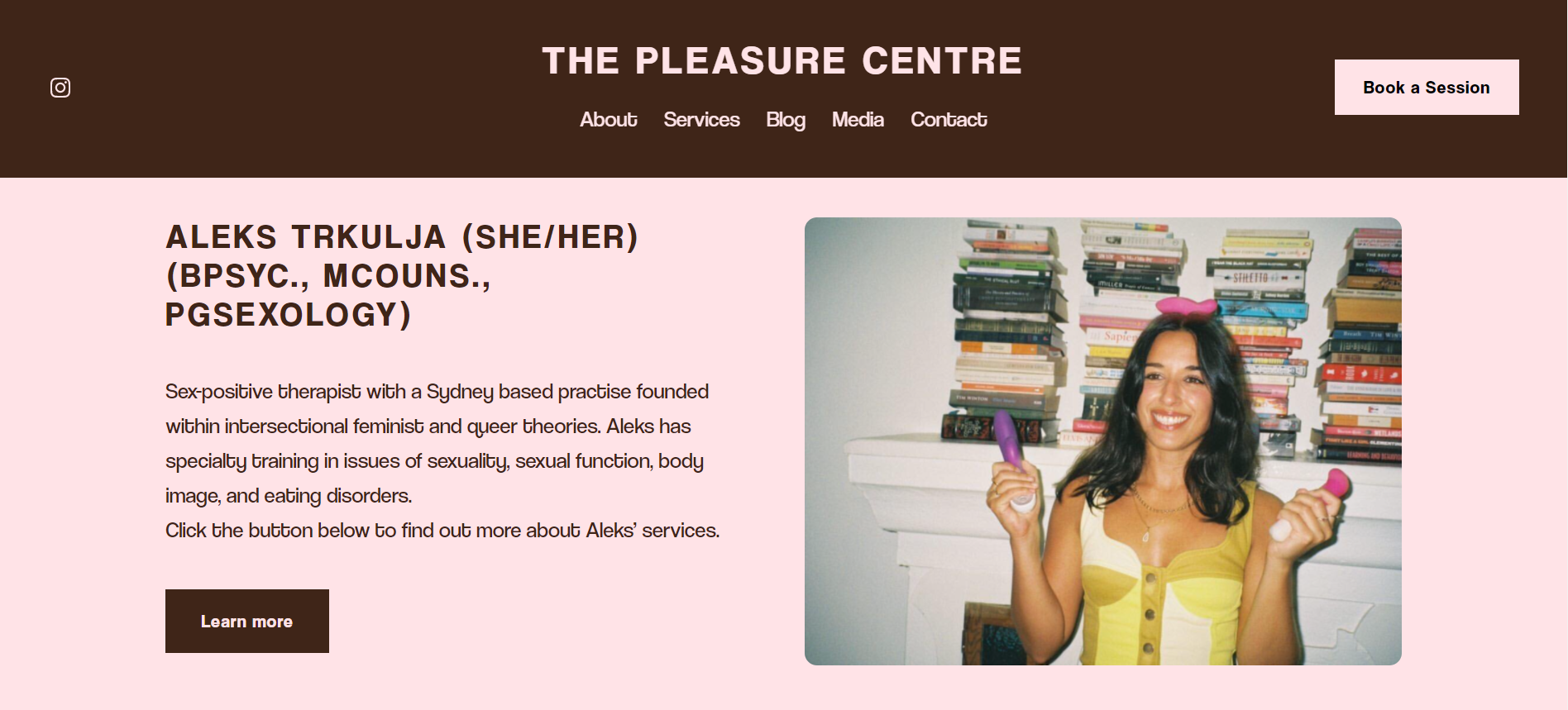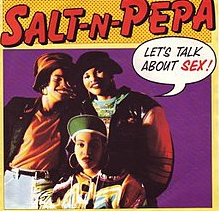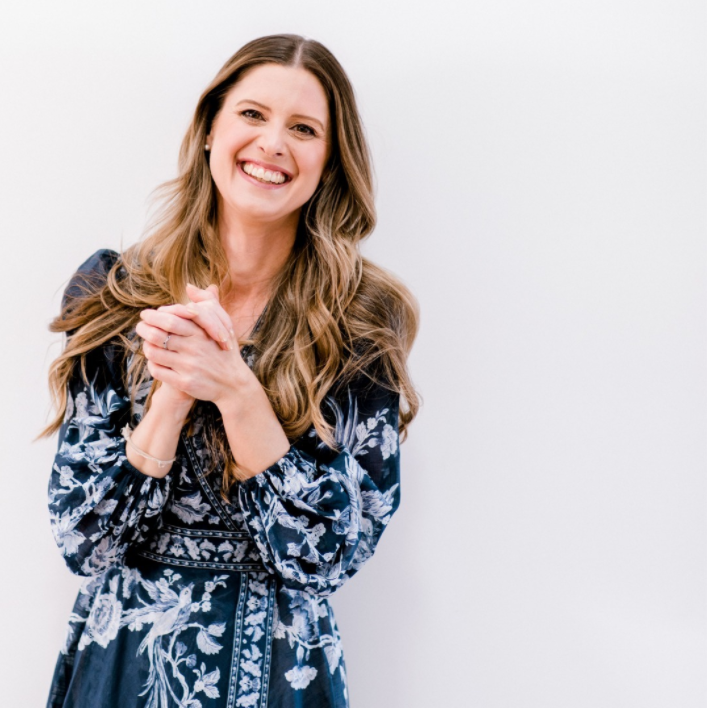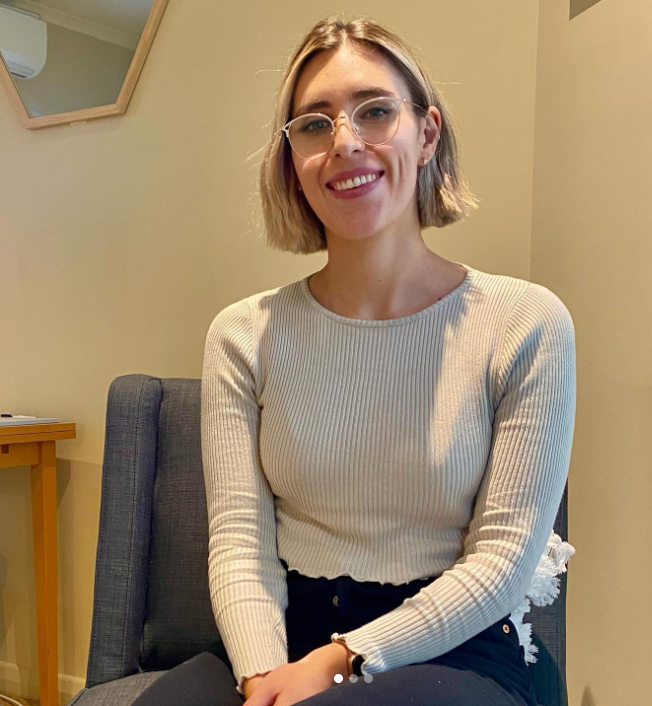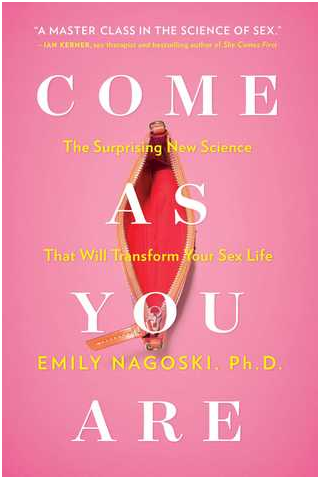Sexology & Sexologists
June 2023
Hey there Caddyshackers,
Time to get our winter vibes on! Heaters, comfy woolens and slippers are all happening over here, as is some reflective downtime and getting excited for what’s coming!
This month we are keeping the momentum of P is for Pleasure in April and Masturbation May going by talking all things sexology ahead of our On The Couch webinar with Sexologist Aleks from the Pleasure Centre coming up in September.
We thought it was a good time to loop back on our sex positive stance and take some time out to acknowledge the work of a sexologist, discuss what sexology is and why there is such a buzz around this type of work at the moment.
Throwback to Salt and Peppa who were quite possibly the first “sexologists” when they sang their famous tune “Let’s talk about sex baby!” It gave permission to talk about about sex more openly.
See, the thing is “sex” and the experience of “sex” means lots of different things to different people. A discussion with a sexologist can really help to open your mind to the possibilities around sex.
So, what is sexology?
Sexology in a nutshell refers to the study of sex and sexuality. It looks at aspects of human sexuality such as sexual behaviours, interests and function.
Sexology is about both the psychological and physiological response to arousal and sex.
Someone who studies sexology is known as a sexologist. To become a sexologist requires specialised training and in Australia, they may become accredited through the Society of Australian sexologists.
Recognise these familiar faces and Instagram accounts? They are all sexologists and sex educators doing great work in the sex positive movement!
Who is a sexologist and what do they do?
You might want to deep dive the Instagram accounts above to see what sexologist do, but we always come back to Jodi Rodgers from Birds and Bees who perfectly summarise what it means to be a sexologist.
“A sexologist is a person who has studied human sexuality.
Sexologists have studied the science of sex, which means they have studied human anatomy and physiology (how the body works and why) and psychology (how our minds work) regarding sexuality.
Some people call sexologists, sex therapists, but this doesn’t explain all a sexologist can do to support and help people.
Sexologists help people with all things to do with sexuality. This can be learning out how the body works and making choices about sex, sexual health and reproduction. They can help people to learn more about sexual behaviour and making decisions about what is right and pleasurable for each person.
People may want to chat about sexual orientation or gender identity or about building healthy and respectful relationships. Sexologist can also support people with understanding the rules and laws about sex and how to stay safe”.
Sexologists can be accessed by individuals or couples. There are many reasons why people may choose to access a sexologist for reasons mentioned above, but also post sexual trauma, for ways to enhance their sexual experiences and pleasure and for sexual dysfunction issues too.
A code of ethics operates when accessing a sexologist. To be clear, it is a therapeutic session involving discussion, not a physical session.
The ultimate goal of attending a sexologist is to move past any physical or emotional challenges a person may be experiencing to have a pleasurable sex life, as this is a human right!
Why the buzz & hype about sexology?
Thanks to shows like “Sex, Love and Goop” on Netflix there has been an increased interest in how to have more pleasurable sexual encounters either with oneself and/or partner/s.
As a society that is becoming increasingly more sex positive, we are reaching out to sexologists and services like The Pleasure Centre.
The sex positivity ripple is slowly becoming a wave and we look forward to seeing more people embracing their inner pleasures and desires.
See you at On The Couch with Sexologist Aleks from the Pleasure Centre
What we are loving right now
Emily Nagoski’s book “Come as You Are”.
Researchers have spent the last decade trying to develop a “pink pill” for women to function like Viagra does for men.
So where is it?
Well, for reasons this book makes crystal clear, that pill will never exist—but as a result of the research that’s gone into it, scientists in the last few years have learned more about how women’s sexuality works than we ever thought possible, and Come as You Are explains it all.
Until next time,
Peace, Love & Protection

